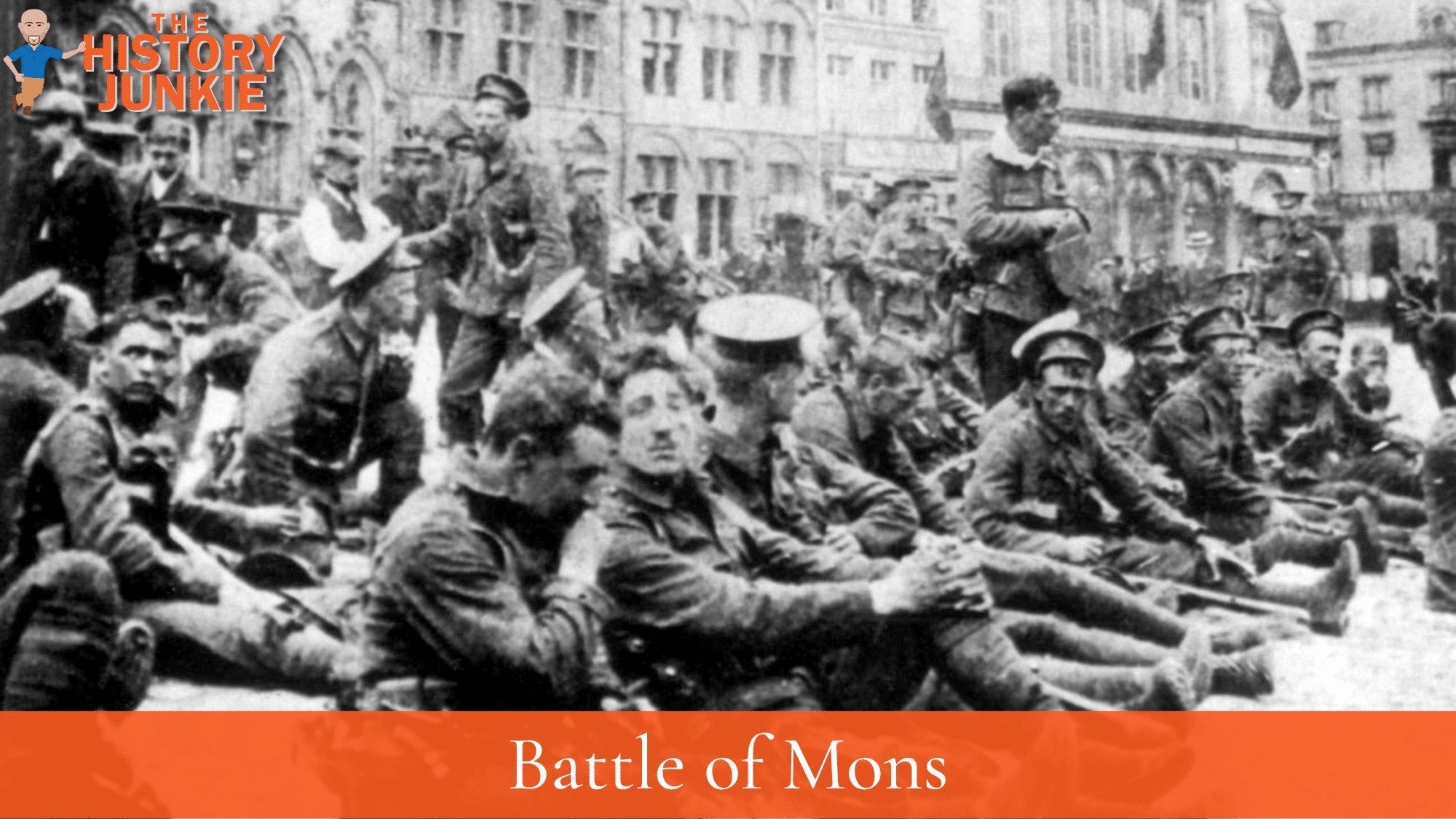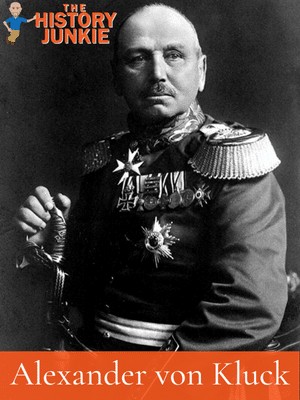The Battle of Mons took place on August 23, 1914, and was one of the Battles of the Frontier that occurred at the beginning of World War 1.

The Battle of the Frontier had several battles:
The Germans had seen much success at the beginning of the war with the implementation of the Schlieffen Plan, which allowed them to take control of Belgium and push the French Army back.
This battle would be the first in which the British Expeditionary Forces would fight. At this point, only Germany, Belgium, and France had fought.
Background
Sir John French was the Commander-in-Chief of the BEF and was moving cautiously from the Belgian coast and planned to meet up with French General Charles Lenrezac near Charleroi on the Sambre.
However, before he could meet up with the French General, Sir John French encountered German cavalry patrols. The French then made immediate plans to attack but did so without knowing the full strength of the Germans.
The French were unaware of the German victories at Ardennes and Lorraine.
Changing tack overnight, the French ordered his five divisions to establish defensive positions at the nearby Mons Canal French's surprise at meeting the German First Army was equaled by its commander, General Alexander von Kluck, who had just seen action at the Battle of the Sambre against General Charles Lanrezac's and was intent on chasing Lanrezac to the south.
Movements and the Fighting
General Alexander von Kluck launched a frontal attack on the British on August 23. The German force was miscalculated by the French and British. It was miscalculated despite the warnings from French General Lanrezac to French Commander-in-chief Joseph Joffre that the Germans had been built up.
Joffre initially appeared not to heed Lanrezac's warnings, perhaps because they conflicted with France's pre-war battle strategy, Plan XVII, which assumed that Germany would not attack France via Belgium.

Meanwhile, Sir John French, who, because the initial British-German contact had come via cavalry troops, had effectively bought himself a day's respite before the battle commenced, deployed his two infantry corps, commanded by Sir Horace Lockwood Smith-Dorrien and Sir Douglas Haig, respectively, east and west of Mons across a 25-mile front.
The eastern wing almost reached the retreating French Fifth Army under General Lanrezac, some eight miles away. Edmund Allenby's cavalry division was held in reserve in case of need.
At the start of the battle, the British found themselves heavily outnumbered by their German opposition: 70,000 troops as opposed to 160,000 and 300 guns against 600 Germans.
Despite such odds, von Kluck's offensive against General Smith-Dorrien, following a preliminary artillery barrage, began disastrously, the British riflemen exacting heavy losses from the advancing German infantry.
Indeed, by mid-afternoon, he had no progress to show for the offensive. Nevertheless, over the course of the first few days of fighting, the British suffered some 1,600 casualties. The efficiency of the British riflemen was such that von Kluck assumed that the enemy was using machine guns.

Alexander Von Kluck paused the attack in order to draft in reserves; the French, having heard the news that General Lanrezac had retreated and could, therefore, offer the British no assistance, ordered a strategic retreat to the British second line of defense.
Von Kluck renewed the offensive in the evening, by which time the French had realized quite how strong von Kluck's forces were.
French, therefore, ordered Smith-Dorrien and Haig to retreat further; von Kluck did not at first give chase, choosing instead to address the heavy casualties inflicted earlier in the day.
Ultimately, however, he inflicted almost 8,000 casualties upon the British rear guard at the Battle of Le Cateau on August 26.
The British Commander-in-Chief then undertook an extended retreat French himself recommended complete withdrawal to the coast, although Kitchener, the British war minister, rejected the French's suggestion, requiring the BEF to remain in contact with the French forces to retreat to the Marne.
